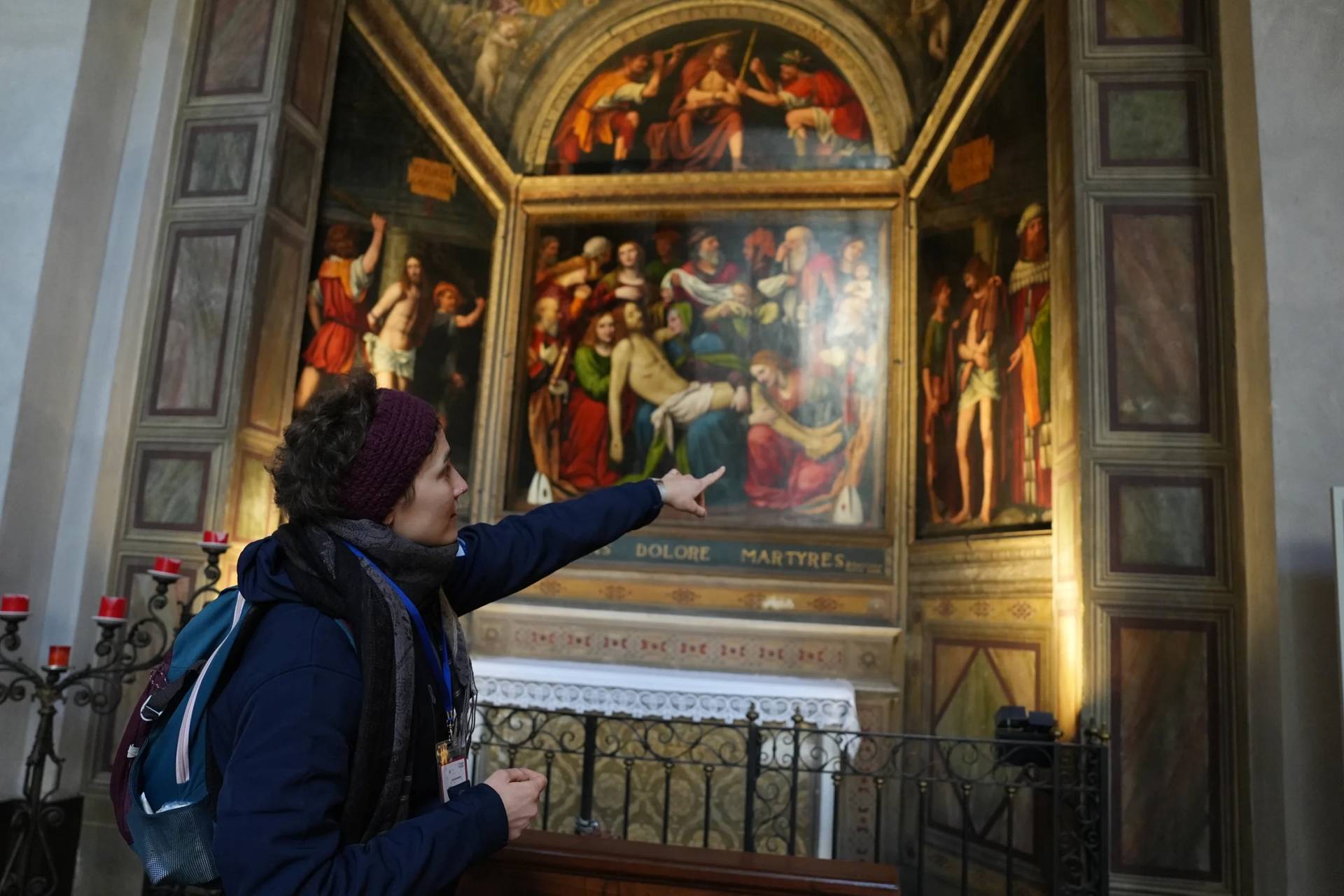ROME — Pope Francis traveled to a prison near Rome to wash the feet of a dozen inmates, a Holy Thursday ritual that symbolizes humility and highlights his papacy’s attention to those on society’s margins.
He arrived Thursday afternoon in a motorcade that included Italian police cars, which entered through a gate of the prison in Civitavecchia, a port city, 50 miles northwest of Rome. The ritual was closed to the public for security reasons and to protect the privacy of the inmates.
Hours earlier, during a Holy Thursday Mass in St. Peter’s Basilica, Francis advised the 1,800 priests in attendance not to focus on worldly concerns such as power or status but exhorted them to “serve, with a clear conscience, the holy and faithful people of God.”
Francis made no reference to decades of scandals involving Catholic priests who sexually abused children and were often transferred from parish to parish by bishops who tried to avoid embarrassment rather than protect minors.
This year’s Holy Week celebrations come as the pope is struggling with mobility issues. Francis suffers pain from a knee ligament problem and for years has been plagued by sciatica, a nerve inflammation affecting the legs and back.
During the Holy Thursday Mass, large urns of oil are blessed for use in ceremonies in churches in the Rome area. When Francis went to bless the oil by breathing into it, an aide helped him rise from his chair and walk toward the silver urn. At the end of the ceremony, Francis descended the steps down from the altar clinging to an aide’s arm, and even while assisted limped his way out of the basilica.
The Vatican did not say what accommodations were made to enable the pope to perform the foot-washing ceremony.
Holy Week, which draws hundreds of thousands of faithful to the Vatican, began with Palm Sunday Mass on April 10 in St. Peter’s Square and culminates with Easter Sunday, when the faithful mark the resurrection of Jesus.
This year, the Good Friday torch-lit Way of the Cross procession in Rome returns to its traditional venue at the ancient Colosseum after a two-year absence due to the coronavirus pandemic.
The Vatican has invited a Russian woman and a Ukrainian woman, who work together at a Rome hospital, to carry a cross together during the procession. That has angered some Ukrainians, including Ukraine’s ambassador to the Holy See and the archbishop of Kyiv. Their objections center on whether such a gesture, implying reconciliation, is suitable, given Russia’s invasion of its neighbor Ukraine and its ongoing war against the country’s people.
The Vatican is still going ahead with the procession’s lineup of participants, who take turns carrying a lightweight cross during the procession, which is presided over by the pontiff and recalls Jesus’ death by crucifixion.












